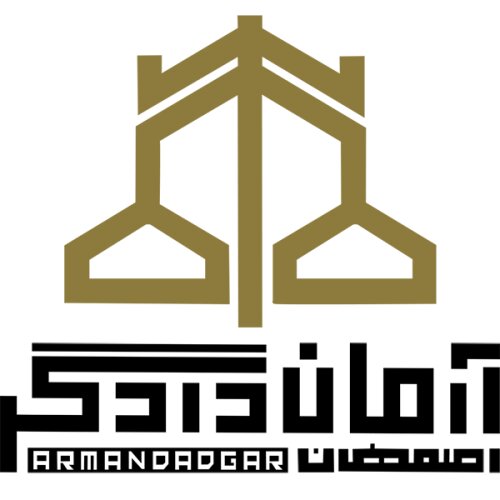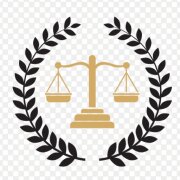Best Restructuring & Insolvency Lawyers in Isfahan
Share your needs with us, get contacted by law firms.
Free. Takes 2 min.
List of the best lawyers in Isfahan, Iran
About Restructuring & Insolvency Law in Isfahan, Iran
Restructuring and insolvency law in Isfahan, Iran, governs the processes that businesses and individuals must follow if they are unable to fulfill their financial obligations. Whether facing bankruptcy, liquidation, or seeking to reorganize debts and operations, these laws aim to protect creditors' rights, provide fair solutions for debtors, and help maintain market stability. The legal framework is primarily based on national laws, such as the Commercial Code and Civil Procedure Code, with certain local and practical considerations specific to Isfahan's commercial and judicial environment.
Why You May Need a Lawyer
There are many situations when consulting a restructuring and insolvency lawyer in Isfahan can be crucial. Some of the most common scenarios include:
- Facing financial distress and not being able to pay debts on time
- Receiving notices or demands from creditors or banks threatening legal action
- Wanting to restructure company debts without resorting to liquidation
- Needing to negotiate settlements with creditors
- Having assets seized or frozen due to outstanding debts
- Involvement in legal disputes regarding responsibility for company or individual debts
- Understanding the bankruptcy process and its implications
- Assisting with court proceedings regarding insolvency or liquidation
A specialist lawyer can guide you through the complex procedures set out under Iranian law, help protect your rights, and work towards the most favorable outcome under difficult financial circumstances.
Local Laws Overview
Iranian insolvency and restructuring laws are mainly regulated by the Commercial Code, Civil Law, Execution of Civil Judgments Act, and various ministerial regulations. In Isfahan, legal proceedings must be initiated in local commercial courts, and local practices or court interpretations may influence the outcomes. Key points include:
- Bankruptcy Proceedings: There are clear procedures for declaring bankruptcy, both for individuals and businesses. The process can involve liquidation of assets and repayment of creditors in a specific order of priority.
- Restructuring Options: Debtors may propose repayment plans or negotiate settlements with creditors under court supervision, sometimes with the aim of rescuing the business.
- Creditor Rights: Creditors have legal avenues to pursue repayment, enforce judgments, or request asset seizures.
- Prohibition of Asset Transfer: Debtors typically cannot transfer assets after entering formal insolvency processes to avoid undermining creditor claims.
- Personal Liability: Directors or individual business owners may be held personally liable in certain cases, such as fraudulent trading or intentional mismanagement.
Local practices in Isfahan's courts and offices can affect the speed, efficiency, and outcomes of cases, making it important to seek guidance from professionals familiar with the region.
Frequently Asked Questions
What is the difference between restructuring and insolvency in Iran?
Restructuring refers to reorganizing a company or individual’s debts and operations to regain financial stability, often without entering bankruptcy. Insolvency means being legally unable to pay debts as they come due, which may lead to formal bankruptcy or liquidation procedures under Iranian law.
How long does the insolvency process usually take in Isfahan?
The duration depends on the complexity of the case, the amount of debt, and the number of creditors involved. Simpler cases may take several months, while complex or contested matters can extend for a year or more.
Can personal assets be seized to pay company debts?
Yes, especially in sole proprietorships or where directors are found personally responsible for debts, such as in cases of fraud or mismanagement. Otherwise, corporate structure generally protects personal assets, but exceptions exist under Iranian law.
Are there alternatives to bankruptcy in Iran?
Yes, alternatives include negotiated settlements, out-of-court agreements with creditors, and formal restructuring plans approved by the court. Engaging a lawyer early can help explore all available options.
Who can initiate insolvency proceedings?
Both debtors and creditors can initiate these proceedings. Debtors may voluntarily declare insolvency when they cannot meet liabilities, while creditors can request the court to begin the process if debts remain unpaid.
Will insolvency affect my business reputation?
Insolvency can impact reputation, especially in business circles. However, timely action, transparency, and proper legal guidance can help minimize negative effects and facilitate recovery.
What happens to employees when a business becomes insolvent?
Employees typically have priority claims for unpaid wages and benefits. However, the exact treatment depends on the specifics of the insolvency process, available assets, and court decisions.
Are foreign creditors treated differently in Iranian insolvency cases?
Iranian law generally treats local and foreign creditors equally, though practical enforcement for foreign entities may present additional challenges due to international legal considerations.
Can I continue to trade while insolvent?
Continuing to operate while insolvent can be risky and may result in legal consequences if it leads to additional losses for creditors. Legal advice should be sought immediately to understand the implications.
How are disputes resolved during insolvency?
Disputes, including creditor challenges or disagreements on asset distribution, are typically resolved by local commercial courts in Isfahan, often with the involvement of administrators or appointed experts.
Additional Resources
If you require further information or support regarding restructuring and insolvency in Isfahan, the following resources may be useful:
- Iranian Judiciary’s Official Portal - for legal forms and court procedures
- Isfahan Bar Association - for lists of licensed lawyers and legal aid services
- Ministry of Industry, Mine and Trade - for guidance on commercial regulations
- Local Chambers of Commerce - for business advice and networking opportunities
- Iran Banking and Credit Institutions - for information on debt restructuring plans
These organizations can provide official information, referrals to trusted professionals, or access to relevant documentation.
Next Steps
If you are facing financial difficulties or considering restructuring or insolvency in Isfahan, it is vital to act early. Here are your next steps:
- Gather all relevant financial documents and records, including bank statements, contracts, and debt agreements
- Consult with a restructuring and insolvency lawyer who is experienced in Isfahan’s legal system
- Discuss all available options, from negotiations to formal insolvency proceedings
- Follow legal advice carefully to avoid unnecessary risks or liabilities
- Maintain transparency and communication with creditors, employees, and partners throughout the process
Seeking professional legal guidance is the most effective way to protect your rights and interests and to achieve the best possible outcome during challenging financial times in Isfahan, Iran.
Lawzana helps you find the best lawyers and law firms in Isfahan through a curated and pre-screened list of qualified legal professionals. Our platform offers rankings and detailed profiles of attorneys and law firms, allowing you to compare based on practice areas, including Restructuring & Insolvency, experience, and client feedback.
Each profile includes a description of the firm's areas of practice, client reviews, team members and partners, year of establishment, spoken languages, office locations, contact information, social media presence, and any published articles or resources. Most firms on our platform speak English and are experienced in both local and international legal matters.
Get a quote from top-rated law firms in Isfahan, Iran — quickly, securely, and without unnecessary hassle.
Disclaimer:
The information provided on this page is for general informational purposes only and does not constitute legal advice. While we strive to ensure the accuracy and relevance of the content, legal information may change over time, and interpretations of the law can vary. You should always consult with a qualified legal professional for advice specific to your situation.
We disclaim all liability for actions taken or not taken based on the content of this page. If you believe any information is incorrect or outdated, please contact us, and we will review and update it where appropriate.










